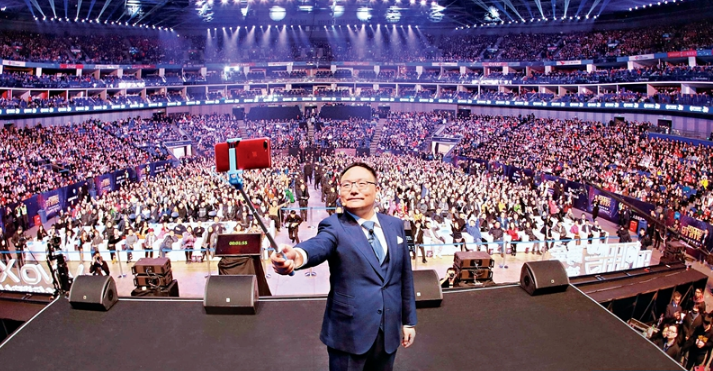Narrating 2.0 – The Boom of Audio Sharing Portals in China
China Today,May 28, 2018 Adjust font size:
“Himalaya” Paves the Way
“One can only see well with one’s heart. The essence is invisible to the eyes...” A gentle male voice accompanied with discreet twangs of guitar strings reaches my ears and my consciousness via the earplugs of my smart phone.
It is the mobile app of the Chinese audio sharing portal Ximalaya FM (in English Himalaya) that sends these famous lines from the novel The Little Prince into my earbuds.
While I sit on the sofa of my Beijing apartment and listen to the Chinese audio book, already more than two million pairs of ears before me had done so, as the digital display reveals.
As early as 2014, a user of the app recorded the Chinese translation of the classic by Antoine de Saint-Exupéry and put it online in 27 short episodes. Two million people listening to an audio book – that doesn’t sound like the end of oral narrative to me.
The creators behind China’s first audio streaming service Ximalaya launched the first version of their app of the same name in March 2013. Since then, users can upload their own audio contributions to the platform and share them with other visitors.
Today, Ximalaya has around 40 million active users per month, six million of whom actively use the service every day. On average, each of them spends around 125 minutes on the platform. According to the provider, around 10,000 new audio contributions are uploaded daily. Within about five years, the supply has ballooned to over 60 million audio files.
This makes Ximalaya the most successful podcast platform in China, albeit by no means the only one. Competitors such as Qingting FM (Dragonfly FM), LRTS (Audio books for lazybones), Lizhi FM (Lychee FM) or QQ FM (named after the popular messenger service) now also count millions of users.
Why is it about oral narration that China is experiencing such a revival in the 21st century?
“Especially for mobile users, audio streaming is simply a convenient source of information and entertainment, particularly when their eyes are busy elsewhere,” explained Ximalaya co-founder Chen Xiaoyu in 2015 at the Shanghai TechCrunch, an event of the eponymous world’s leading online news portal for technology and Internet companies. The 2015 Shanghai TechCrunch focused on the topic of the Internet of Things (IoT).
According to Chen, audio streaming is not just a novel entertainment option for everyday situations such as during commuting or housework, where our eyes need to focus on other things, but also whenever our eyes get tired of the glare of screens or we want to fade away for a while from the visual overload of everyday life, we like to immerse ourselves in the perceptually better manageable world of the narrated word, Chen said.
The founders of Ximalaya recognized this growing need of modern city dwellers at an early stage and were not only able to continuously expand their user base thanks to a wide range of radio plays, but also to establish numerous cooperations in the areas of in-car and home entertainment.
Today, Ximalaya works together with well-known car manufacturers such as Ford, BMW, and Cadillac in the development of car entertainment systems for the Chinese market. And there are also cooperation agreements with manufacturers of intelligent household appliances, including such renowned companies as Haier, Midea, Skyworth, and Hisense.


